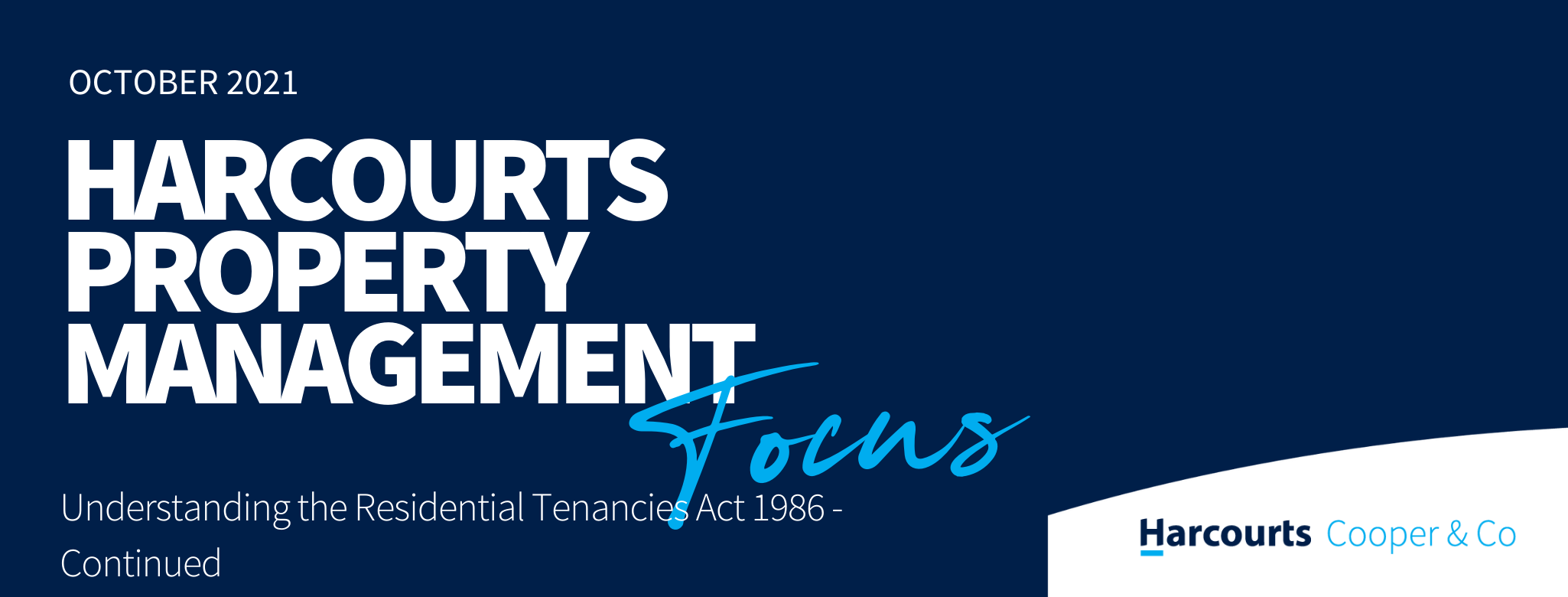
In last month’s edition of Property Management Focus, we highlighted some key parts of the Residential Tenancies Act 1986 (RTA) that both private landlords and professional property managers are required to abide by. This month we continue to explain the various thresholds that are often misinterpreted or misunderstood by landlords in an effort to provide greater clarity on how certain aspects of the law are interpreted.
“Reasonably” Clean and Tidy – Section 40(1)(e)(iii) RTA
The RTA states that on termination of the tenancy, the tenants must leave the premises in a reasonably clean and reasonably tidy condition, including removing all rubbish from the premises. However, the RTA does not define what is meant by ‘reasonably’. A good starting point as to what is reasonable can be to state the level of cleanliness in the ingoing inspection report. If the premises is not clean and tidy at the beginning of the tenancy, it would be very difficult to convince a tenant that they needed to leave the premises in a better condition than when they moved in. Secondly, the standard of cleanliness is subjective. What is reasonably clean and tidy is judged by the fair and sensible person and does not equate to a commercial clean.
To minimise any arguments, it is very important to take ingoing and exit photos to show the ‘before’ and ‘after’ condition of the property as evidence to tenants, your clients and the Tribunal. The Tenancy Tribunal has stated that what is ‘reasonably clean and reasonably tidy’ is not an absolute standard. This standard will vary according to the age and condition of the premises as already mentioned. There is no requirement that each and every individual item in the premises be left reasonably clean and tidy, only an overall obligation in relation to the tenancy premises.
Unlawful Acts
Under the RTA, there are some acts and breaches that are considered serious enough to be deemed an unlawful act For example, a landlord interfering with a tenant’s quiet enjoyment of their home is a breach of the act. However, if that landlord continues to interfere with the tenant’s quiet enjoyment so that it becomes harassment, then that act breaching the quiet enjoyment amounting to harassment is an unlawful act. This is described throughout the Act for various breaches.
If you become aware of a tenant committing an unlawful act, our recommendation is that you speak with your Harcourts property manager. It is likely that your property manager will serve a 14-day breach notice to the tenants if they have breached any terms of the Agreement or RTA. If the tenant does not comply with the 14-day notice, then your property manager can take further action through the Tenancy Tribunal.
Any attempts to avoid the responsibilities a person has under the Act can be deemed an unlawful act
by the Tenancy Tribunal. Exemplary damages can be awarded for unlawful acts and the fines for exemplary damages can be found under Schedule 1A of the RTA.
Privacy
The general rule is that you should not store personal information for longer than required for the purpose for which is may lawfully be used. You should not request more information than is necessary of an individual’s identifiable information. You must ensure the information is stored securely, but accessible to provide this information to the individual it belongs to when requested. It is prudent that you look over the privacy principles under the Privacy Act 2020 and the obligations should there be a privacy breach. On a practical note, leaving unsecured copies of tenancy applications on car seats or desks is unacceptable.
Landlords should be aware that tenancy applications are private, therefore, they should not be shown to parties who are not part of the transaction and the landlord should keep the documents secure.
Privacy Act 2020 and the obligations should there be a privacy breach. On a practical note, leaving unsecured copies of tenancy applications on car seats or desks is unacceptable.
Landlords should be aware that tenancy applications are private, therefore, they should not be shown to parties who are not part of the transaction and the landlord should keep the documents secure.
Source REINZ
